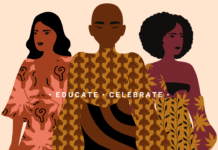Do you know how to say I’m sorry and mean it? After the response from my Monday post about how my husband has helped me with the art of the apology, I think its only fitting to write a full blog post on this topic. Apologies are hard! I totally get it. Sometimes I really, really don’t want to apologize. But I know deep down in my heart that I need to. Sometimes the other party doesn’t receive the apology, and that’s not very fun. But what I do know is that my part of the situation ends the second I deliver an authentic apology. I am not responsible for the other party receiving it with a gracious heart. I am responsible for giving an authentic apology and asking for their forgiveness.
1. What does not qualify as an apology?
For starters, anything that you use to qualify your actions doesn’t count.
“I’m sorry if…” is one of the biggest cop-outs for an apology on the planet. It’s not an “if”! You hurt their feelings. Saying “I’m sorry I hurt you, but…” is even worse. Stop trying to give reasons why it’s okay for you to use the words that you did or justify the actions you performed. Sure, maybe the other party is guilty too. But you aren’t responsible for them apologizing to you. You can kindly suggest that they apologize, but more often than not, they won’t. A lot of people have the gift of thinking they are without blame. This is infuriating, but at the end of the day, we can rest with the knowledge that God is a just God, and he will hold us accountable for each of our actions.
Likewise, someone might use the correct words, but if there isn’t sincerity in those words, the apology doesn’t count.
Too often, people will say the words “I’m sorry” without meaning it. To mean those words is to take full responsibility for the hurt they caused. Fake apologies are seen a mile away and will never result in true healing. The fruit of a good apology is a road of harmony. You might not become best friends again, but there are zero negative feelings between the two parties. I had a friend who was always first to apologize. Sounds good, right? Wrong. He used those words like he was saying “Good morning.” They became so commonplace to him that really, they lost their meaning. Quick apologies can be good, but if they aren’t sincere, the apology doesn’t count.
2. Why are apologies necessary?
I think you and I can both remember at least one time in our lives when there was a lack of harmony between us and another person. It felt like there was a giant dark cloud over your head, and you knew you were wasting time being upset or not apologizing. Time is precious, and maturity yields more harmony. Why not spend time with that person in peace? Not only that, but apologizing helps you grow in relationships. Fights are the worst, but knowing how to get over a fight and heal and move forward makes that relationship so much deeper. Some relationships can’t bear the weight of even one fight. That’s very unfortunate, but if after apologizing there still is no chance of reconciliation, then you know that relationship wasn’t worth it anyways.
When you are able to reconcile, the relationship does grow stronger. You have a peaceful future with that person, and you (or they) know what not to do. Apologizing gives you the chance to communicate what went wrong and how to avoid it in the future. I feel so sad when people say that they don’t apologize because they just get over it. You don’t just get over it and never do it again. Unless words are exchanged, it’s going to happen again.

3. How do you respond to an apology?
So let’s say you did it. You royally messed up with somebody close to you, and then you put aside your pride. Finally, you work up the courage to offer a genuine apology. After that comes their acceptance. The truth is, sometimes it doesn’t. If somebody does not respond to an apology with grace, compassion, and acceptance, and you truly have apologized genuinely, there’s nothing else you can do. Unfortunately that person has let go of an opportunity to heal and grow by not accepting the apology. It’s like that age-old saying that holding a grudge is like drinking poison; it only affects you. When somebody does not accept an apology, they are inadvertently keeping a grudge against you. And that’s on them, dear friends.
I’ve had that happen to me before, where I’ve apologized even though both parties were in the wrong, and the second party never accepted my apology and never apologized for their actions. It’s unfortunate because now any chance of a relationship is lost, but I know in my heart that I have no negative feelings toward that person, whereas I wouldn’t be able to say the same for them. Their actions clearly speak for themselves. Somebody who withholds forgiveness and one who withholds an apology are in the same exact boat. Both of them are choosing to stay in the past, and that’s not the way that life moves.
4. Can you give an example of a “good” apology?
(Name of person), I’m sorry that I (what you did). I can see how that hurt you. I hope you will forgive me.
Obviously it doesn’t have to fit that exact format. But those sentences cover the basics. Address the person, state what you did that was wrong, comment on how it hurt the person, and ask for their forgiveness. A good apology comes from the heart. It comes from a place of humility and a genuine desire to have peace. If it is met with graciousness and eagerness, you will have peace in that relationship. In a world where reconciliation is possible, if people would put their pride aside and love their neighbors, I hope and pray that reconciliation is a desire in all of us. The art of the apology isn’t difficult; it’s just unnatural for our prideful selves.

“Therefore, confess your sins to one another, and pray for one another so that you may be healed.
The effective prayer of a righteous man can accomplish much.”
James 5:16
Many people don’t apologize because they don’t know how to apologize to the ones they’ve hurt.
After reading my art of the apology is there anybody that you need to apologize to?
Is there anybody that you need to forgive? Next week, I’ll share with you guys ways that help me forgive.
Meanwhile you can read this post about power and this one on the mental health benefits of gratitude.
Cheers,




![[No. 93] Love Is Real Mom Friends. Real Mom Friends](https://thehonestshruth.com/wp-content/uploads/2020/07/DSC06586-scaled-e1594924314133-218x150.jpg)























